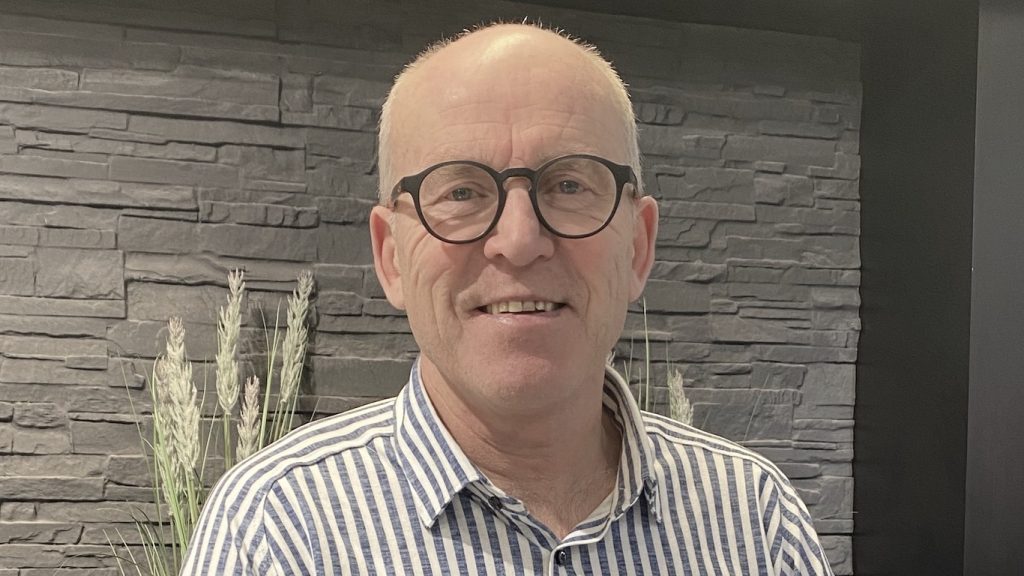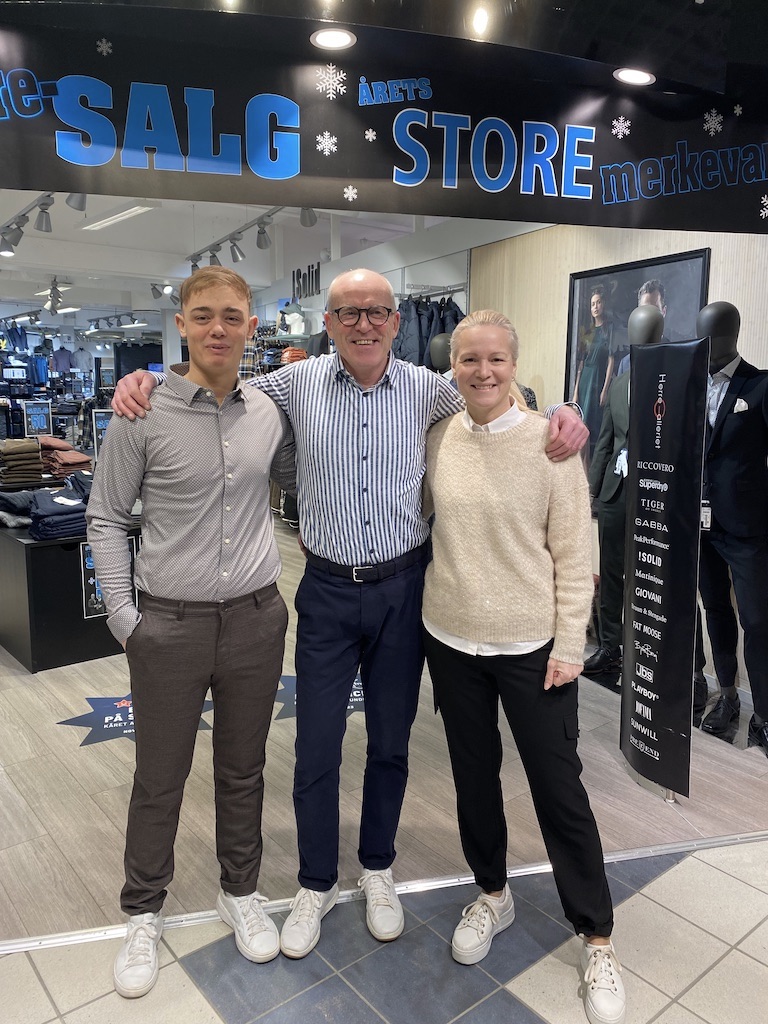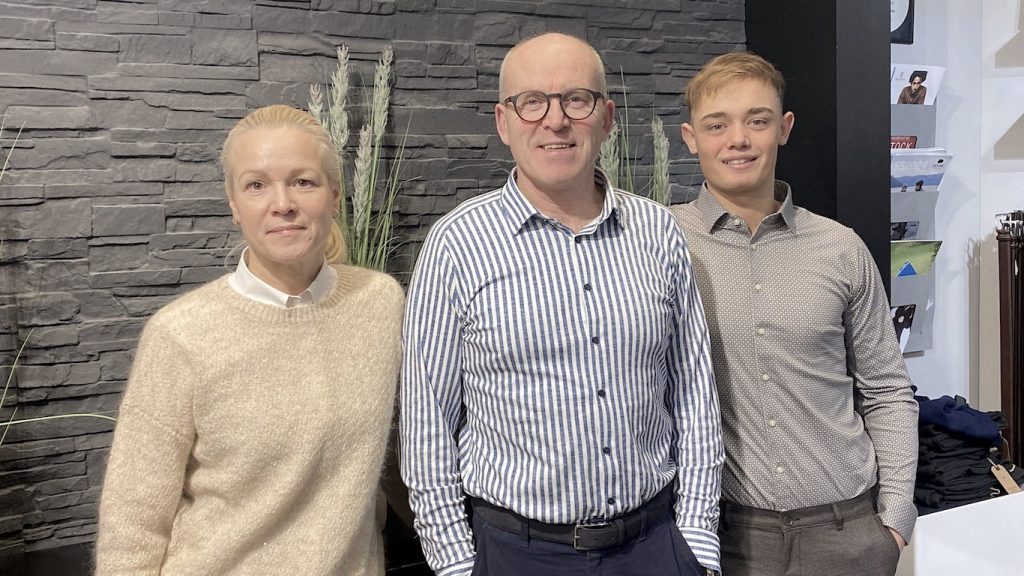Don’t be a world champion – we’ve got enough of those
When you run a clothes shop in Sortland, everyone knows who you are. Customers aren’t just visiting Herregalleriet, they’re visiting Børre Stranda.

Herregalleriet opened on 09/09/1999 at 09:59 a.m. at the Sortland Storsenter shopping mall in Vesterålen. Børre Stranda has been the general manager ever since. He also owns a third of the business.
“Well, nine is a lucky number,” Stranda says cheerfully.
As its name suggests, Herregalleriet is primarily a men’s shop, but they also carry some items for women:
“We bring in Riccovero and a bit of Peak Performance for women. A lot of women come to shop for men, so they get lured over to that corner. And that’s great,” Stranda says.
As we spoke to them in mid-December, they were very excited for Christmas after the incredible shopping season last year. “We’ve actually seen an increase this year, so far. In November, we were up by 12-13 percent, which I hadn’t expected. We’ll be very satisfied if we can keep our figures roughly like that for December.
Good fishing means good business
With 33 shops across 3 floors, Sortland Storsenter is the biggest shopping mall in Vesterålen. The mall presents an excellent range of different shops.
Here, you can find Vinmonopolet, the post office, the grocery store, and pharmacy, but also Hennes & Mauritz, Cubus, and on the second floor, Herregalleriet.
“Sortland is the place to shop in Vesterålen. People from districts like Bø, Lødingen, Hadsel, and other nearby areas flock here,” says Stranda.
“Sortland isn’t so small that we’re selling to Tom, Dick, and Harry, but it’s still a bit like that. It’s a lot of fun.”
Børre Stranda
Now that Herregalleriet has built a reputation as a place that knows suits, customers are streaming in from Harstad and Lofoten, too. Yet, it’s not all about location, inventory, and visibility. Other factors come into play as well:
“Good fishing is important for us up here, because good fishing means good business! When businesses around us are doing well, and that includes Andøya, which is 100 km away, as well as Øksnes, Bø, and Lødingen and Hadsel … Of course, we get a lot of customers who shop both as consumers and through their companies.”
In the past, when fishermen came to shore, they’d call Stranda in the evening to hear if they were open. Now that the open hours have been expanded, he instead gets the question: “Are you working today?”
“Sortland isn’t so small that we’re selling to Tom, Dick, and Harry, but it’s still a bit like that. It’s a lot of fun. And it’s important for me to know everyone. With a shop in such a small town, most people end up knowing who you are. The customers aren’t just going to Herregalleriet, they’re going to Børre.”

You can’t slack off
“In the past, all you had to do was sell when customers came in. But we’ve established trust here, and you can’t break that trust in a small area. If you do that, word spreads fast. You’ve got to keep up the pressure. You can’t slack off. Look at Harstad: they had a good men’s clothing shop that went out of business. I noticed an increase in business from there, especially people who wanted suits. So, they’re going through the grapevine, asking: ‘Where can I buy a suit in Harstad?’ ‘Nah, head to Sortland and check out Herregalleriet. They’ve got lots of nice suits.’”
“How do you talk to your customers?”
“When people stop by the shop, you talk about the clothes as little as possible. I talk about other things. Customers have a much better time stopping by and talking about fishing trips or how things are going at work. You’ve got to be a little chameleon, and you’ve got to listen. Don’t be a world champion – we’ve got enough of those.”
“It may sound a bit clichéd to say, ‘we’re honest’, but if a guy stops by and tries a suit that doesn’t look good, I’ll say: ‘You know what? I don’t think you should go with that suit. That one’s not right for you.”
“What kind of response do you get?”
“They’ll often say: ‘This is why I shop here. You let me know.’”
The working environment is key
Herregalleriet has three full-time employees plus two part-timers. To Stranda, the working environment is the key to giving the shop a good atmosphere and making sure the customers enjoy their visit.
“Customers have a much better time stopping by and talking about fishing trips or how things are going at work.”
Børre Stranda
Getting part-timers can be a challenge in small towns, Stranda says, continuing:
“We haven’t got a college here, so when people finish secondary school, they move on. We’ve been really lucky, though. We raise them a bit, mould them a bit, have pizza nights at work, run some suit workshops and have a nice chat.
“So, how do you find the right part-timers in a small town?”
“Well, I’m now so old that I know their parents, and their parents are proper people. That’s kind of how things are. But we do ask a lot of them. You can’t just come in and look pretty behind the counter. They have to be on.
Healthy competition
“How’s your competition with the other clothes shops in Sortland?”
“We don’t view it as competition here. In our view, it’s important to have lots of shops to bring people here. We have some competition from Harstad and Lofoten, of course, but that’s just healthy. On top of that, we have really good communication with some of these shops, and we all make sure not to mess with each other’s brands.
Never out of stock
“You’ve had stronger results for a few years now. What’s your secret?”
“Part of why things are getting better and better is that we’re doing a lot of NOOS for suits. That is, we’re never out of stock and keep some suits in our inventory at all times. We used to think: ‘Oh, that suit was nice, that one too’, but we’d end up with a lot of leftovers. The results were one-one. We weren’t making money, because we ended up with a lot of ‘mounds’, as we say in Northern Norway.”
“Every Monday, we make new orders to fill the gaps we’ve sold, so that we always have those sizes available. We keep going all the time, and that’s probably why our results have been grow so well these past three years.”
Keeping good staple items, and enough of them, is also a key factor:
“It helps to keep staple items in stock, because they don’t go out of fashion. Perhaps that makes for a slightly more “boring” shop, but it clearly yields better finances.
“Take out the three of us who are here now and put in three completely fresh recruits, and the shop will be gone in less than a year.”
Børre Stranda
Many good touches
Herregalleriet is also active in the local newspaper, and each Monday, they check the weather report to fine-tune their marketing to the conditions.
They’ve also implemented the Front computer system to keep an overview of their stock:
“It’s been excellent. When we’re there with the customer, I can take out my phone and check if I’ve got this or that in stock. I don’t even have to leave the shop. When we go to trade fairs and we’re purchasing goods, I can easily check how much we’ve got of this or that jacket. It’s been a really good tool.
Stronger together with Texcon
Herregalleriet has been a member of Texcon for over 10 years. Although Stranda had wanted to be independent, he saw the advantages of being connected to a purchasing collaboration that can get good deals: “Texcon never forces anything unnecessary on us. For us, that’s wonderful. We were working alone, but then somebody came and promoted it to us and told us what it was about. We thought at the time it would mean more obligations, that you have to buy this and this brand, but all the brands we carry were already in Texcon. And when the Covid crisis came, they called and asked us: “How are you doing? Are goods being shipped out?” So we’ve become stronger together, and it didn’t end up being as bad as we’d feared at first. We thought we might have to just shut down, but it ended up being a good year, actually

Keeping up the entrepreneurial spirit
“Herregalleriet is an example of how honesty, trust, and a strong connection to the local community can create a successful business that has survived and thrived for nearly 25 years now … Looking into your crystal ball, how is Herregalleriet run in the future?
“I’m 62 years old, so I’ve got to start thinking about that. After all, I won’t be around forever. But take out the three of us who are here now and put in three completely fresh recruits, and the shop will be gone in less than a year. Things were completely different before. People would carry on their family businesses. You see more and more family businesses that went sour because they didn’t have anyone to inherit them. So, we’ve started running a small module now, getting some sense of the employees who will carry on running the shop. A lot of people should be thinking about that, not just going: “Wow, I’m 67, what do we do now?”.
“I’ve got to ask, do the people who may be taking the reins someday have the same entrepreneurial spirit as you?”
“Yes, they’re exceedingly talented. That’s why our numbers are so good. We may have the same inventory as many other shops, and the same interior, but ultimately, it’s the people behind the counter who are the secret to it all,” Stranda concludes.